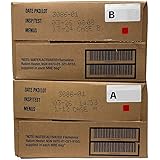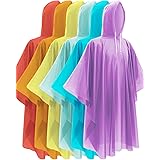Identify Potential Sources of Contamination
Understanding Local Water Sources
First off, it’s super important to know where your water is coming from. Are you getting it from the city supply, a private well, or maybe even a local river? Each of these has its own risks of contamination, and if you don’t assess the sources, you could be drinking water with hidden nasties. Take it from me, the more you know, the better prepared you’ll be.
What I’ve done and suggest to others is to check local water quality reports. Most municipalities provide annual reports, and those little nuggets of information can clue you in on any existing risks or recent outbreaks. Knowledge is power, right?
And don’t forget to talk to your neighbors! They might have insights you don’t know about. A community that’s informed and vigilant is our best line of defense against waterborne ailments.
Recognizing Common Contaminants
Next, let’s chat about the big players that cause waterborne illnesses. Bacteria like E. coli and Salmonella often come to mind, but viruses and parasites can be just as problematic. I remember when my friend Nick got sick after camping; turns out, he didn’t boil or treat his water from the stream! Knowledge of these contaminants is crucial.
You’ll want to research which pathogens are common in your area. Sometimes, seasonal changes can impact water quality, and that’s something I check into often. Keep an eye out for fluctuations, especially after heavy rains!
And here’s a tip: understanding the symptoms related to these contaminants can help you catch potential issues early. If you or someone you know suddenly feels off after drinking water, raise the red flag.
Utilizing Water Testing Kits
So, here’s where it gets a bit techy, but trust me, it’s worth it! Investing in water testing kits can really make the difference in ensuring your water’s safe. I’ve used them after moving to a new place, and it gave me peace of mind. These kits can detect bacteria, heavy metals, and other harmful substances.
Once you get your kit, follow the instructions carefully. You don’t want to mess up the testing! Most kits will require you to collect samples from various points in your water supply, so be thorough.
== > What if ... Get a FREE Subscription to PREPARE
And don’t just stop there! If you find something concerning, reach out to local health authorities or a water quality lab. They can help interpret the results and suggest next steps. Better safe than sorry, right?
Invest in Proper Water Treatment Methods
Understanding Your Options
Okay, so once you’ve identified potential threats in your water, it’s time to take action. There are a bunch of water treatment methods available like boiling, filtration, or even chemical treatments. I always boil my water if I’m in doubt, especially after heavy rainfall. It’s simple and effective.
Now, filtration systems can range from basic pitcher filters to whole house systems. Depending on your needs, I’d recommend checking which contaminants are prevalent in your area to choose the most effective system. This isn’t a one-size-fits-all situation!
Finally, don’t forget about chemical treatments. They can be handy when you’re out camping or during emergencies. Just make sure to read the label for proper dosages – you don’t want to go overboard!
Regular Maintenance of Treatment Systems
Investing in water treatment is awesome, but it’s not a set it and forget it deal. You need to maintain your system! For instance, I’ve learned the hard way that filter cartridges need changing every so often or else you’re just recycling the same old problems. I try to mark a calendar reminder for myself.
It’s also crucial to conduct regular checks on your treatment systems, especially if you have a well. This means checking for any wear and tear, leaks, and making necessary repairs. I usually set a semi-annual schedule to do this just to keep everything in tip-top shape!
Lastly, if you ain’t sure about how to maintain your systems, consult professionals. They know the ins and outs and can provide the best advice tailored for your situation. Trust me, it’ll save you a lot of hassle in the long run.
Educate Yourself and Others
Informed folks make the best decisions. Learning about waterborne illnesses and sharing that knowledge with family and friends can turn this information into true community action! I often find myself chatting with my pals about it during BBQs or community events. Sharing tips and tricks always leads to a deeper understanding.
Consider joining or forming community groups focused on water safety. These groups can be instrumental in advocating for clean water access and educating others on preventing illnesses. Plus, it’s a great way to meet like-minded individuals!
In essence, don’t keep that hard-earned knowledge to yourself. The more people understand the risks and solutions, the safer we all become. It’s about creating a ripple effect of awareness.
Stay Aware of Current Health Advisories
Monitoring Local Alerts
I can’t stress this enough: staying informed about local health advisories is key. In my area, we often hear about boil advisories after heavy rains or contamination events. Subscribing to alerts from local health departments is a game changer.
Many municipalities have websites or social media accounts where they post updates about water quality. It’s pretty routine for me to check these platforms regularly. It feels good knowing you’re proactive about your health.
Another tip? Join local community forums or social media groups where residents discuss water issues. You can gain valuable insight from others who are dealing with similar situations.
Get Preparedness and Self-Reliance Tips. Subscribe Now!
Understanding Seasonal Changes
Seasons can influence water quality drastically. For example, I always keep an eye out during the rainy seasons. Increased run-off can lead to contaminants finding their way into water supplies. That’s a time when I make sure my filtration is up to par.
It’s all about being adaptable to these changes. If you notice a pattern, like increased alerts during a particular season, make adjustments ahead of time. Know what to do before something goes south.
Remember, you’re not alone in this. Your neighbors and community can also be great resources. Sharing observations about seasonal changes can pave the way for mutual protection against contaminated water.
Promoting Water Safety Education
Here’s where you can be a champion for health! I believe promoting water safety education should be a community goal. Organize workshops or discussions where people can learn about the importance of clean water and how to prevent illnesses.
Enlist the help of local health experts to speak on potential threats and solutions. This is a wonderful way to foster community bonds while ensuring everyone is on the same page about water safety.
And don’t forget technology! Consider creating an online resource hub where people can access information, current advisories, and tips. The more informed everyone is, the safer we’ll all be from waterborne illnesses.
Practice Good Hygiene and Sanitation
Handwashing Basics
Let’s get real for a second: often, you can everything possible to ensure your water is clean, but if hygiene is out the window, you’re still at risk. Regular handwashing is a must! I keep hand sanitizer in my bag for that on-the-go clean.
Make sure everyone in your household knows how to wash their hands properly – it’s not just a quick rinse under the tap! You gotta scrub for at least 20 seconds to really get rid of those germs.
Additionally, teaching children about the importance of hand hygiene can lead to lifelong practices. As a parent myself, I’ve found that making washing fun (hello, sing-along!) encourages the little ones to take it seriously.
Safe Food Handling Practices
Next up, let’s talk about food! Waterborne illnesses can come from improperly prepared food just as easily as they can come from contaminated water. Always wash fruits and veggies with safe water. I love to soak my produce before cutting – it adds an extra layer of safety.
When cooking, make sure you are aware of any cross-contamination risks. Keep raw meat and other potential hazards separate from ready-to-eat food. Trust me, I learned that one the hard way!
And if you’re dining out, especially during travel, only eat from trustworthy places. I usually check reviews or local recommendations just to be safe. It’s easier to enjoy a meal when you know you’re taking precautions!
Waste Management
Finally, let’s touch on waste management. Proper disposal of waste is essential to preventing waterborne disease. If waste is not managed correctly, it can leach into water supplies. I always check that my local disposal points are in line with regulations.
For those of us who have gardens, knowing how to compost correctly can help reduce waste effectively while keeping our environment clean. Just make sure you’re not composting any harmful substances that could result in contamination.
Communities can organize clean-up events to promote proper waste management practices. Sounds fun, right? Team up with friends and neighbors to keep the environment fresh!
Frequently Asked Questions
What are some common waterborne illnesses?
Common waterborne illnesses include giardiasis, cryptosporidiosis, cholera, and E. coli infections. These can cause symptoms ranging from nausea and vomiting to severe diarrhea.
How can I test my home water quality?
You can test your water quality using a home testing kit. These kits are available at most home improvement or online stores, and they can detect bacteria, heavy metals, and other contaminants.
What treatment methods should I consider for my water supply?
Popular treatments include boiling, using a water filter (like reverse osmosis systems), and employing chemical treatments such as chlorine. Choose based on the contaminants present in your water!
How often should I check my water treatment system?
You should inspect your water treatment system regularly, at least every six months, to ensure it’s functioning effectively. Additionally, change any filters as recommended by the manufacturer.
What should I do if I suspect my water is contaminated?
If you suspect contamination, stop drinking the water immediately and contact your local health department. They can provide guidance on what steps to take and arrange for testing if necessary.






